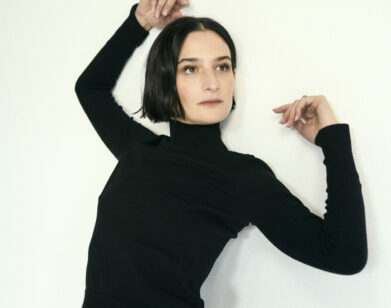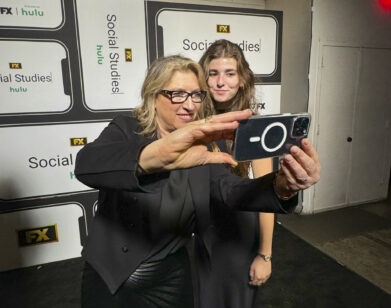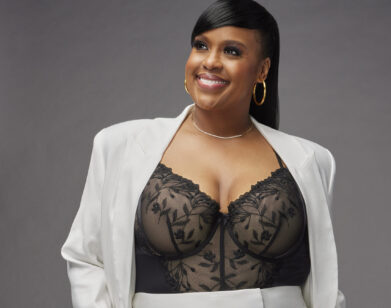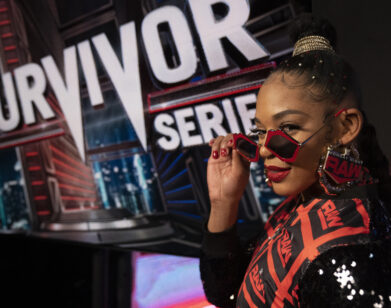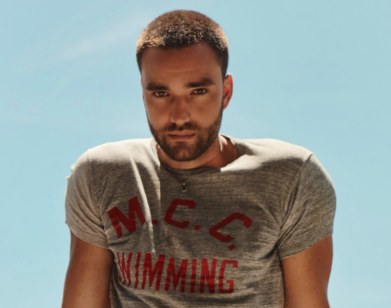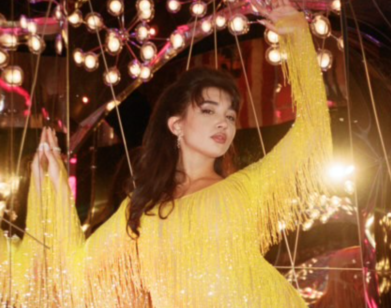Ramy
Ramy Youssef on Fulfillment, Celebrity, and Saying Goodbye
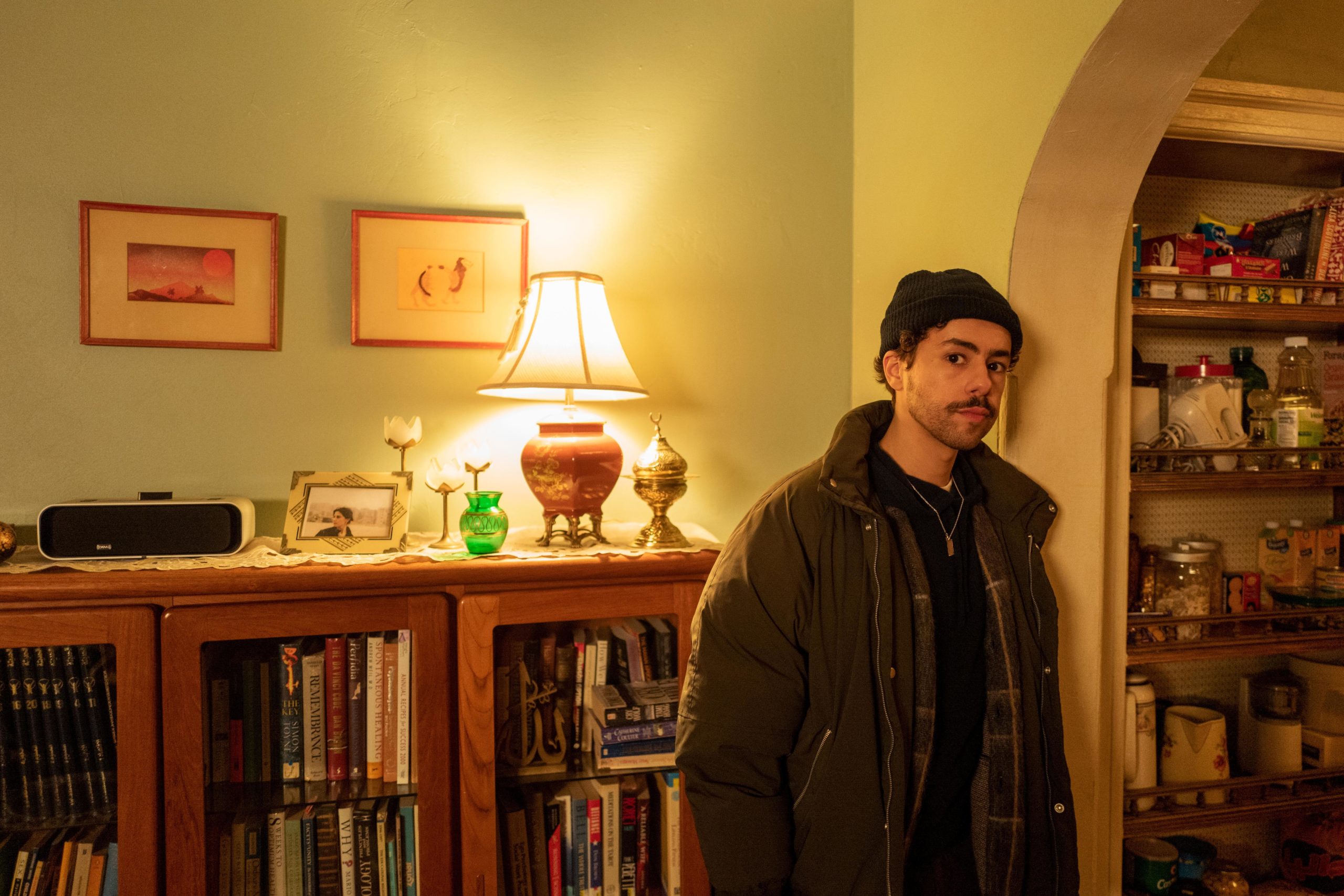
Ramy — “harry potter” – Episode 301 — are you watching horse porn? Ramy (Ramy Youssef), shown. (Photo by: Marcus Price/Hulu)
For Ramy Youssef, the creator and star of Hulu’s hit series Ramy, the key to creating a successful show depends on the marriage of its thematic undertones—namely, how to make it meditative, engaging, thought-provoking, and above all else, funny. Throughout the first two seasons of Ramy, a story about a first-generation Egyptian-American struggling with his spirituality as a Muslim and a 21st-century millennial, Youssef wrestled with synthesizing and coalescing these themes. However, in its third season, the show’s focus has shifted off Ramy, and more onto the larger ensemble, specifically his family. As Youssef told us last week, he believes this change has propelled this season into being the show’s best yet. Youssef sat down with us to discuss this new season, the differences between him and his character, and the future of the show.
———
JACKSON WALD: How was the response to the release of season three of Ramy been?
RAMY YOUSSEF: It’s been great. We’ve been working on the season for so long and it got held up. I went to go shoot a movie for a few months and then I also co-created the show Mo on Netflix, so I went to Houston for a bit and there were all these things that elongated the cycle. So it’s really just exciting that we got it out. It’s my favorite season and so it’s been cool that people seem to feel that way, too.
WALD: I wanted to ask you about working on Mo. What was it like working on a self-titular show that wasn’t your own? What experience did you bring over from your experience making Ramy and what did you learn?
YOUSSEF: There’s something really liberating when it’s not you and yours so directly. I was able to really help zoom things out and I learned a lot about how to really craft a story from already having made two seasons.
WALD: When you watch TV now, are you watching it with more of a critical eye, as someone who’s created a show, directed a show, and starred in a show? Do you ever watch a show and say, “Oh, I would’ve done this differently.”
YOUSSEF: Yeah, I feel that way a lot with editing. I’m always thinking, “Oh wait, there would’ve been a different edit here.” I feel that way a lot when I’m watching things and I think anyone who’s been in the industry for a bit will tell you there’s a little bit of a trade-off where you are sacrificing the ability to enjoy things moving forward. But with the things I really love, I turn my brain off. I don’t even think about it. If [a show] gets my trust in the first 5, 10 minutes, then I’m able to turn everything off and just enjoy it. I watched Severance this year and five minutes in, I was like, “I’m not even going to think about this critically because it’s so good that I just want to enjoy it.”
WALD: I think it’s also a cultural thing where every day there’s another TV show. It’s just this mass proliferation of content that it feels hard to stay afloat when there are another five Amazon Prime shows and a Roku show and a Netflix show. It’s almost like you’re drowning in it.
YOUSSEF: Totally. I think we’re in a bit of a streaming bubble. I do think it might pop at some point. There really is just so much going on.
WALD: Now that you’ve made three seasons of Ramy, how do you keep it from feeling stale and repetitive? How do you continue to feel and find fulfillment when you’re making the show?
YOUSSEF: We have a really good time playing with big shifts as to where the character is in his life. And we use time jumps and storylines that put him into different emotional states. So we see him act differently and we see him deal with life differently—and we do the same with his family. It’s embracing these tonal shifts that are still within the world of the show, which also allows us to try different things throughout the lifespan of the show. And then the more the show goes on, it becomes more of an ensemble, which makes it really exciting for me because it revolves around me less.
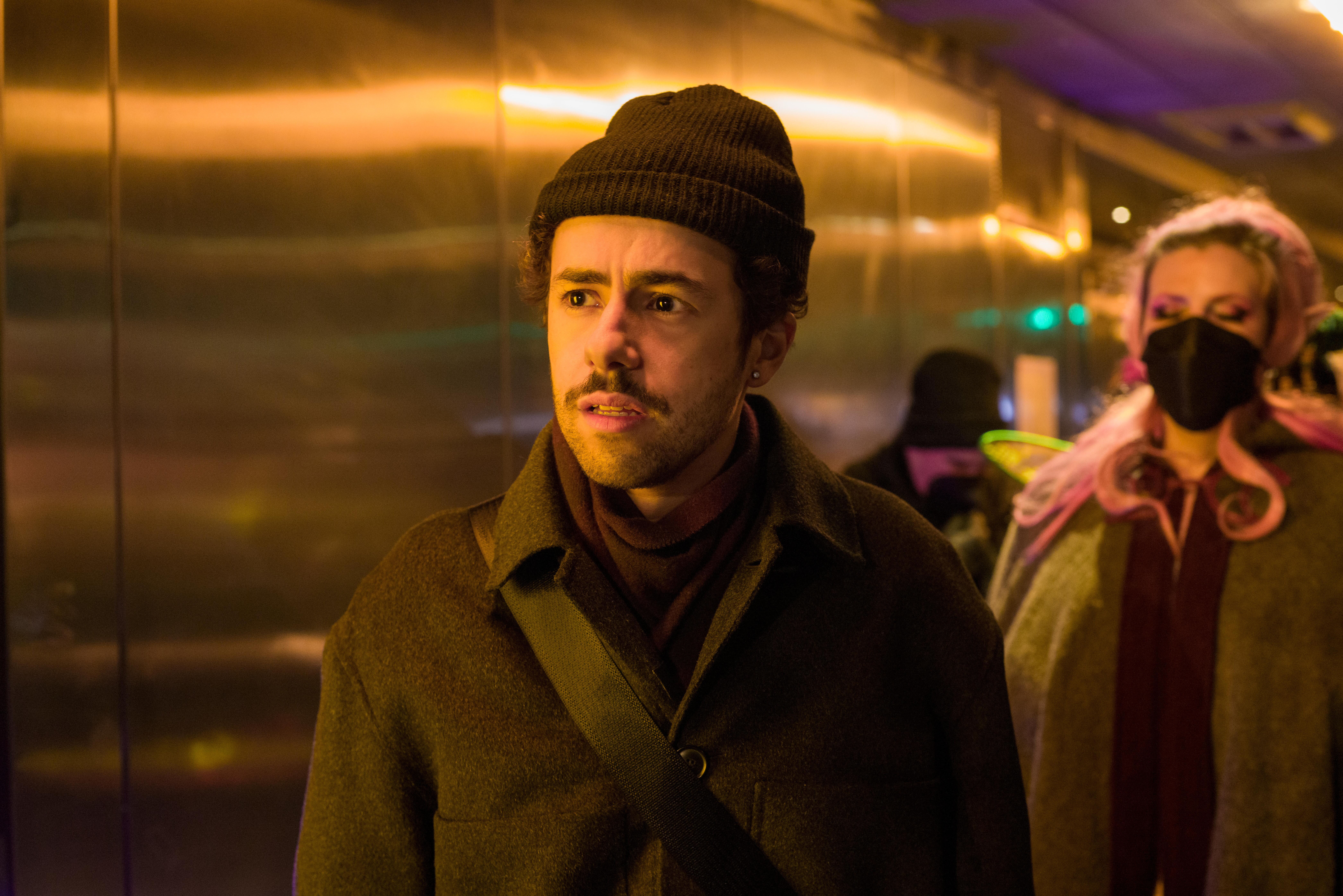
Ramy — “that’s what she said” – Episode 304 — the prayer mat is not for sale. Ramy (Ramy Youssef), shown. (Photo by: Marcus Price/Hulu)
WALD: This season there’s an emphasis on family and on the ensemble. How did you fully decide to embrace this shift, and why was so important to you?
YOUSSEF: I think it’s just about purely following what feels fun and what feels organic. And the caliber of actors that we have on our show is unbelievable to me and I feel really lucky to be able to write for them and work with them and direct them. It’s also something I feel like the audience wants too. There have been a few times when people will be like, “It’s weird. I think I might like Ramy more when Ramy’s not in it as much.” And I’m like, “Me too.” Maybe that’s even why it feels that way to the viewer because I have so much fun when I’m not in it as well. And don’t get me wrong, I love being in it and I love what the character means, but I also think the Ramy character is kind of an ego death happening over the course of a few seasons. And in a way that can be uncomfortable to watch because we’re pretty relentless about it for him, but being able to really step into everyone else’s storyline is just pure fun.
WALD: What did you learn from making seasons one and season two, that when you started making season three, you felt compelled to continue working on and amplifying? Or was there anything you were like, “This is what we need to change?”
YOUSSEF: Well, we were really in stride with what worked for us in terms of mixing thematics and mixing comedy. So I think that over making the first 20 episodes, I felt that there were times when we were all thematic and maybe we lost some of the jokes. And then there are times when we were going for the joke a lot and we weren’t as thematic. I like both, and I think both worked really well in very cool ways for us. But the third season felt like an opportunity to synthesize everything I loved about the first two seasons. I feel like in every episode, we were able to both make sure that we’re really getting those strong character arcs, but also getting the joke.
WALD: I read an interview that you did recently and you mentioned that you feel like there’s this simmering anger throughout this season. And I thought that was just really a fascinating tidbit — the correlation and dichotomy of anger and comedy, and how they play together. I was wondering if you could just elaborate on that.
YOUSSEF: Yeah, it’s a real pressure cooker and I think things are funny when there’s tension. And that this anger that’s happening underneath fuels a lot of the tension. And then just we’re able to pop off jokes in it because it just means so much to the characters and the more invested they are, the funnier it is when it doesn’t go their way.
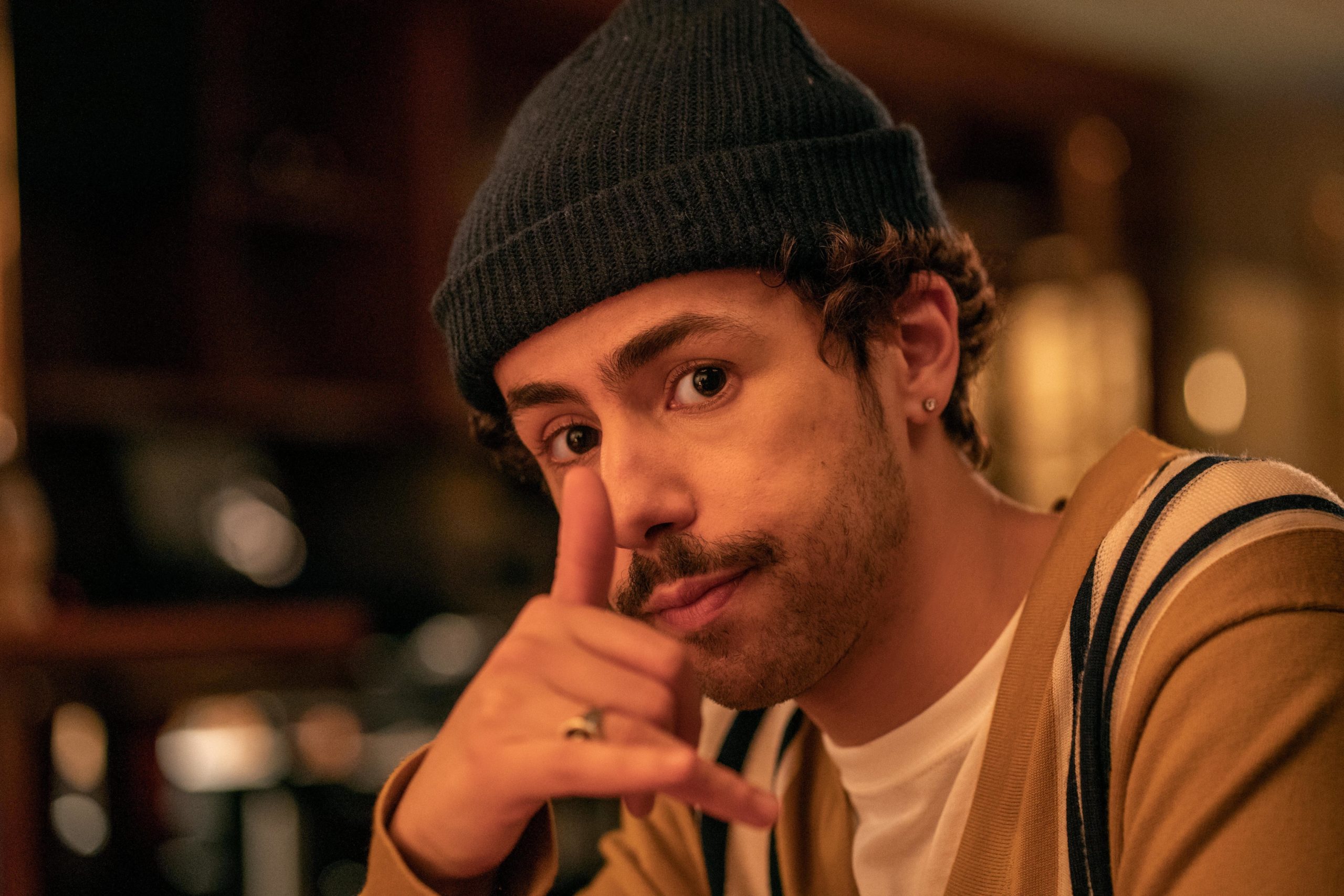
Ramy — “that’s what she said” – Episode 304 — the prayer mat is not for sale. Ramy (Ramy Youssef), shown. (Photo by: Jon Pack/Hulu)
WALD: Was there one specific episode this season that has an added weight or gravity to you?
YOUSSEF: Episode two in Jerusalem of this season definitely has added weight. I think the level of difficulty to talk about what’s happening there while finding the jokes is definitely high. But then also being there was a really incredible and sobering experience just to see how people are dealing with what’s happening. While we were there, the journalist Shireen Abu Aqla, who was really a very prominent voice in the region, was killed. And so to be there while that happened, and to have crew members who had worked with her—we shifted our schedule because we were no longer really able to access the West Bank in the way that we wanted to. So it was emotional, it shifted logistics, but it also I think, galvanized everybody to tell a nuanced story. Episode six was another episode that means a lot. We shot it over three different countries, Egypt and Spain, and America. So three different crews went into making an episode like that happen. Those are episodes where you really feel the collaboration in full effect and it’s a total team situation to make them happen.
WALD: I find it so fascinating, with self-titled television shows, in particular, there’s Ramy, the character that people have become familiar with for three seasons, and there’s Ramy, the actual person. What is it like having people who associate you with the characterized version of you rather than the real you?
YOUSSEF: Ultimately what it does is it just helps me take life less seriously because I know that there are people who just hate this character and it’s my face and it’s my name, but it’s not me. And maybe they think they hate me and also that’s okay. And so there’s something really freeing about it because it removes me from the need to be too obsessed with protecting any sort of perception.
WALD: Totally. I was talking to a friend about this yesterday and the idea of celebrity and fan culture, where everyone thinks they know you and is almost obsessive, is so odd. There’s a weird disconnect that no one really acknowledges where it’s like, “Do you really know them?”
YOUSSEF: Yeah. Interview is Warhol, right? I’m sure it’s said every fucking week, but the Warhol quote “Everyone will be famous” is so real and it’s so happening. I think it’s good because I think it demystifies celebrity, which is good because I think that anytime you’re idolizing people, I don’t think a ton of good or reality comes from it. And so I think the more that feels less special is probably better.
WALD: How do you envision Ramy’s journey ending and when you have to say goodbye to the character, what that’s going to be like for you?
YOUSSEF: I’m hopeful we get to do one more season and then say bye. I was telling someone the other day that we started putting together character descriptions and episode ideas for this show in December 2016, and a bunch of the ideas that have made it into the show were also ideas that I had been writing down previously. So many pieces of my creative life have gone into it, but even if I start thinking about it from December 2016 and we’re about to be December 2022, I’m like, “Man, I’ve been thinking about this every day and working on it in some way every week for about six years.” And so I think hopefully we do one more [season] and then put it down for a while. That would be a nice goodbye.
WALD: Do you think you’d ever do a 90-minute Ramy movie?
YOUSSEF: You know, it’s funny. I think the ideal would be to do another season and then we could, at some point—I’ve always thought 5, 6, 7 years go by—do a season about being a dad. I think that the good thing about it being my name is that it could just come back in a different iteration, but who knows?

